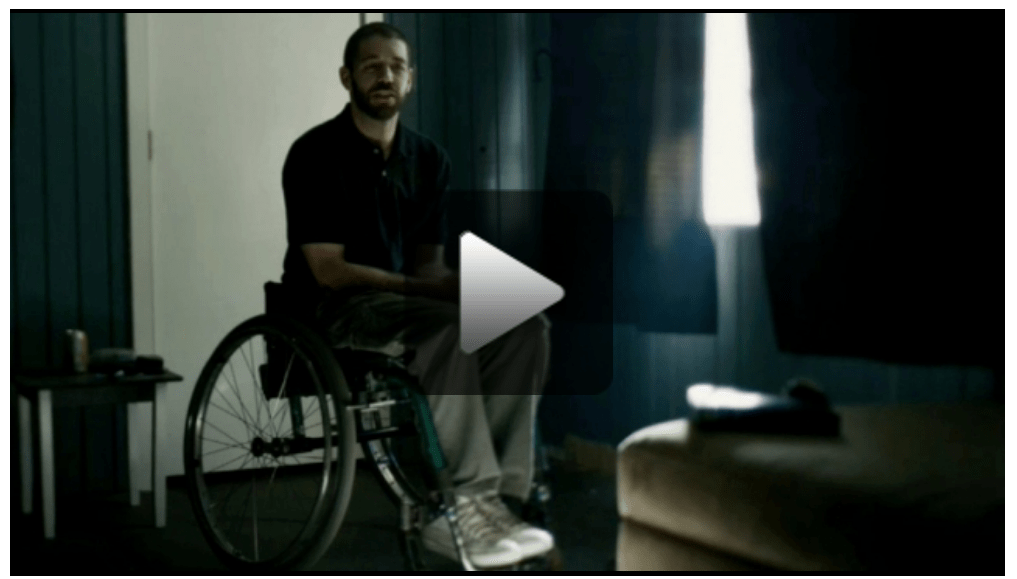So just the other day, I was lecturing radical feminists never to question anyone’s identity as a woman, even if she was born with guy parts. In that post, I posed what I thought was a rhetorical question.
Could a white person declare himself black in the same way a person born with female parts can declare himself to be male? Can I decide to be disabled without actually having a physical or mental impairment that substantially limits one or more major life activities?
If I should have learned anything in 53 years, it’s that there are no questions rhetorical enough that someone somewhere won’t answer, “yeah — that’s me.”
Meet Chris. He is not a person with disabilities, but nonetheless identifies as one and sits in a wheelchair whenever he can without giving his secret away to the people that know him. On last night’s episode of Showtime’s documentary series 7 Deadly Sins (this week’s sin: envy), Chris shared his story.
“I identify as a guy in a wheelchair,” he said. “I feel like I have the wrong body. I feel like I’m supposed to be disabled. What I want my life to be like is what is the detriment of a lot of people’s lives, the worst thing that’s ever happened to them, and I think it would be the best thing that ever happened to me.”
I feel fairly strongly that this is wrong, just as a white person declaring himself to be black or have a black identity is wrong. I’m just having a hard time articulating a principled reason why.
I support the rights of trans men and trans women to be the ones to tell us what gender they are, rather than having that be dictated by the body parts they were born with or what society thinks they should be. And I have no problem if a person of one religion converts to another, and adopts a new identity wholesale.
Then there are those (Obama; me) born into two identities (black/white; Jewish/Protestant) who essentially get to choose — one; the other; or both — which choice is generally respected.
Yet we clearly have a set of negative judgments for people of a privileged status (white; nondisabled) adopting and asserting an identity as a less-privileged status (black; disabled) and a different set of negative judgments for the reverse (a black person deciding to identify as white; a disabled person identifying as nondisabled). In the first situation, we use words like “wannabes” or “appropriation” or — in an article in New Mobility — “pretenders;” in the latter, “oreos,” “bananas,” or “passing.”
So, uncharacteristically, I don’t have an answer, or even a working hypothesis. Why is it OK for a person born with male parts to identify as a woman, for a Christian to convert to Judaism, or for a person born in a mixed marriage to choose either identity or both, but not for Chris to identify as a person with a disability?


You’re not the only one struggling with the question. Mostly I see comments about not having to actually live with societal barriers or chronic pain. What if he chose to identify as a person who is blind and wore a blindfold, or a person who is deaf and walked around with earplugs all day and learned to sign? If you can be born with male genitals but know you are a woman, why can’t you be born with hearing but know to your core that you should have been deaf? It doesn’t quite seem like the same thing, I know. Just thinking out loud here.
LikeLike